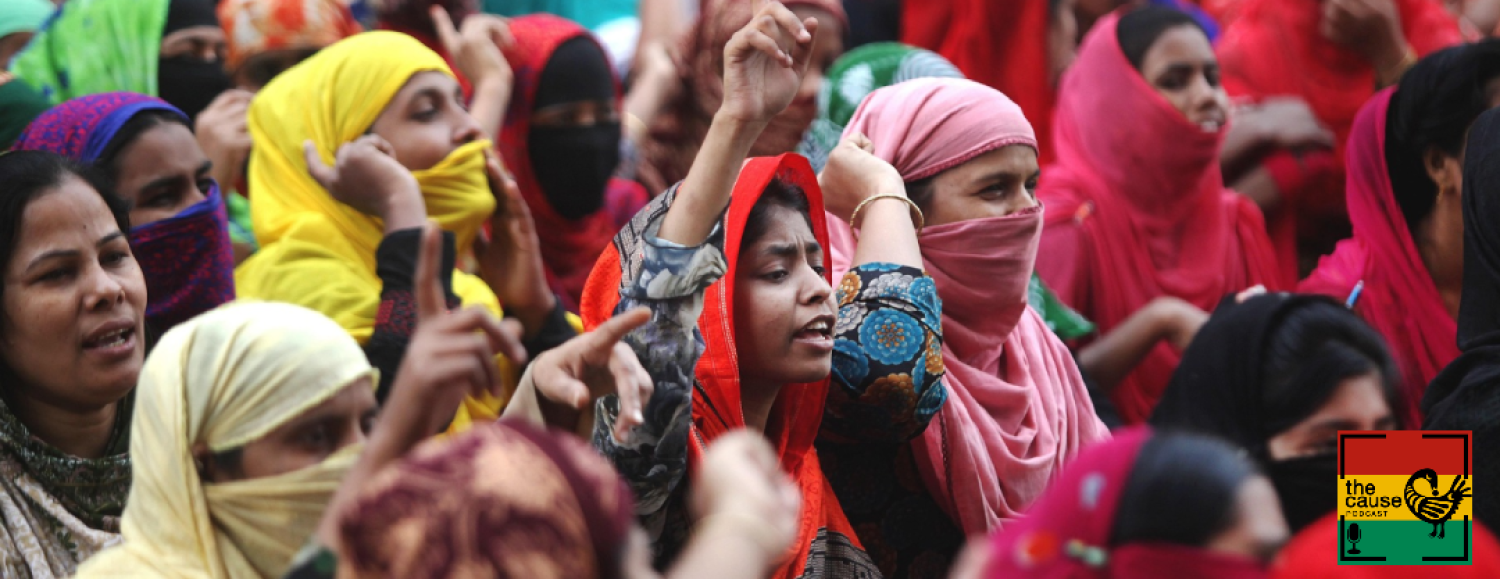Episode 19: Decolonization

PLAY
Episode Date: September 25, 2025
“Decolonization is not simply political. It is also cultural and musical. We can decolonize our minds, our art, and our institutions as we imagine a world rooted in justice, peace, and love.” — Dr. Reiland Rabaka
In Episode 19 of The Cause: Conversations on Music, History, and Democracy, Dr. Reiland Rabaka takes us deep into the meaning and urgency of Decolonization. Far more than a political project, decolonization encompasses cultural, spiritual, and musical transformations. It is about dismantling oppressive systems while reclaiming knowledge, heritage, and self-determination.
Dr. Rabaka draws on the powerful legacies of thinkers and activists like Frantz Fanon and Ngũgĩ wa Thiong’o, whose groundbreaking works called for decolonizing the mind, language, and cultural identity. He also highlights the role of musicians such as Fela Kuti, whose Afrobeat rhythms became a global soundtrack of resistance, and organizations like the Black Consciousness Movement, which connected struggles for freedom across Africa and beyond.
This episode asks us to consider how the echoes of colonialism shape our world today and how communities continue to resist, reimagine, and rebuild. With music, history, and critical thought, Dr. Rabaka shows that decolonization is not a relic of the past but a living struggle that challenges us to envision new possibilities for justice and liberation.
🎧 Listen to Episode 19: Decolonization now on all major podcatchers, and tune in every other Thursday at 7 a.m. on Radio 1190 KVCU (AM 1190 | FM 92.9).
Episode 19 Decolonization Playlist
Listen to the Decolonization playlist on Spotify
- Fela Kuti – “Colonial Mentality” (1977) – Afrobeat anthem critiquing internalized colonial domination.
- Fela Kuti – “Zombie” (1976) – Satirical attack on Nigerian military obedience, linking decolonization to anti-dictatorship.
- Miriam Makeba – “Soweto Blues” (1977) – Protest song mourning the Soweto Uprising; banned in South Africa.
- Hugh Masekela – “Stimela (Coal Train)” (1974) – Jazz lament for migrant labor under apartheid.
- Thomas Mapfumo – “Shumba (Lion)” (1980) – Zimbabwean chimurenga music celebrating independence.
- Manu Dibango – “Soul Makossa” (1972) – Postcolonial Cameroon asserting cultural voice on the world stage.
- Salif Keita – “Soro (Afrika)” (1987) – Malian anthem of pan-African pride and postcolonial hope.
- Youssou N’Dour – “Set” (1990) – Senegalese call for social and political renewal after independence.
- Alpha Blondy – “Jerusalem” (1986) – Reggae anthem linking African decolonization to global unity.
- Brenda Fassie – “Black President” (1990) – South African pop tribute to Mandela and the end of apartheid.
- Bob Marley – “Redemption Song” (1980) – Stripped-down ballad of mental emancipation.
- Bob Marley – “War” (1976) – Haile Selassie’s UN speech transformed into an anti-racism anthem.
- Peter Tosh – “Equal Rights” (1977) – Linking anti-colonial struggle to human rights.
- Burning Spear – “Marcus Garvey” (1975) – Roots reggae honoring Garvey’s Pan-African vision.
- Steel Pulse – “Your House” (1978) – British reggae confronting racism in postcolonial Britain.
- Third World – “1865 (96 Degrees in the Shade)” (1977) – Remembering the Morant Bay rebellion in Jamaica.
- Linton Kwesi Johnson – “Inglan Is a Bitch” (1980) – Dub poetry exposing Caribbean immigrant struggles in Britain.
- Gil Scott-Heron – “Johannesburg” (1975) – Jazz-poetry solidarity with South Africa’s liberation.
- Nina Simone – “Backlash Blues” (1967) – Civil rights meets global anti-imperial critique.
- Max Roach (ft. Abbey Lincoln) – “Triptych: Prayer/Protest/Peace” (1960) – Jazz as decolonial sound, from We Insist! Freedom Now Suite.
- Victor Jara – “El Derecho de Vivir en Paz” (1971) – Chilean ode to Vietnam’s anticolonial struggle.
- Silvio Rodríguez – “Playa Girón” (1972) – Cuban Nueva Trova reflecting on sovereignty and imperialism.
- Mercedes Sosa – “Sólo le Pido a Dios” (1978) – Argentine nueva canción against dictatorship and oppression.
- Caetano Veloso & Gilberto Gil – “Tropicália” (1968) – Brazilian musical rebellion against dictatorship and cultural colonialism.
- Rubén Blades – “Plástico” (1978) – Salsa song critiquing U.S. cultural imperialism in Latin America.
- A Tribe Called Red (The Halluci Nation) – “Electric Pow Wow Drum” (2012) – Indigenous futurism in music, reclaiming tradition through EDM.
- Buffy Sainte-Marie – “My Country ’Tis of Thy People You’re Dying” (1966) – Cree singer’s searing critique of settler colonialism in Canada.
- Tanya Tagaq – “Fracking” (2014) – Inuit throat singing fused with decolonial environmental critique.
- Public Enemy – “Fight the Power” (1989) – Rap anthem against systemic racism and colonial legacies.
- Dead Prez – “I’m an African” (2000) – Radical rap connecting African identity to global Black liberation.
What did we miss on this playlist? Let us know: thecaaas@gmail.com

